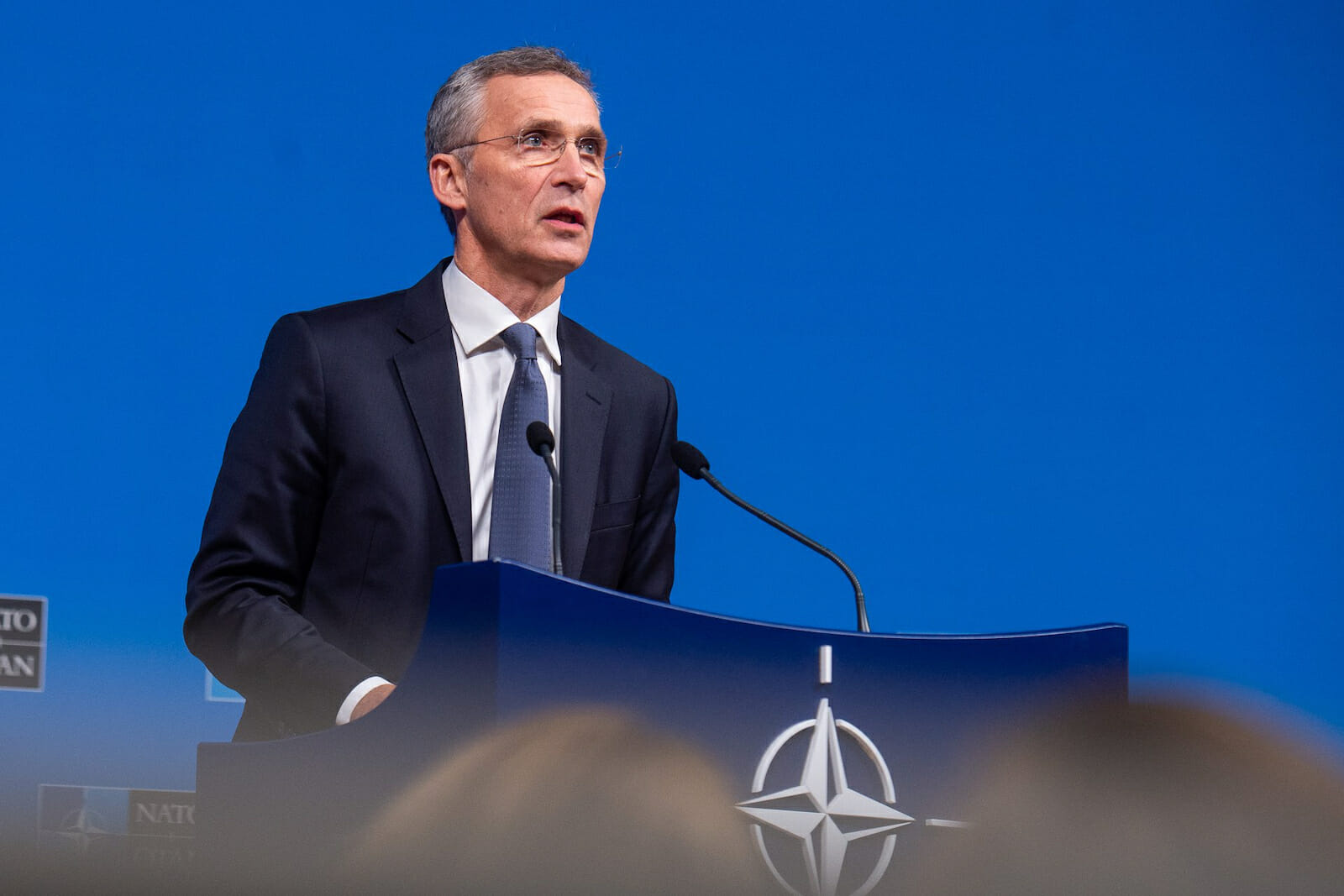
NATO and the Turkish Question
In the midst of news that Turkish President Recep Tayyip Erdoğan had directed military operations against Syrian Kurds, Democratic Congressman Ro Khanna tweeted that if Turkey continues its incursion, “Congress should take action which includes: suspending economic aid, stopping arms and weapons sales, reconsidering their status in NATO.”
Suspension of aid and cessation of arms sales are both frequent threats against uncooperative countries. However, Rep. Khanna’s final thought — reconsidering a NATO member’s status in the bloc — is quite bold. But so is Turkey these days.
To be fair, as Aurel Sari reminds us in Just Security, there is “no provision” in NATO’s founding treaty that “foresees the suspension of membership rights, let alone the expulsion of an ally,” making such a move truly historic.
Despite this, Turkey was not the largest elephant in the room at NATO’s recent summit. The controversies de jour were French President Emmanuel Macron’s publicly stated belief that the alliance is experiencing “brain death,” and President Donald Trump’s cancellation of events following mockery from other world leaders caught on video.
Certainly, NATO faces challenges besides Turkey’s troublesome ties. As Sinan Ulgen, chairman of an Istanbul-based think tank, recently wrote for Foreign Policy, the alliance faces a question at its 70th birthday of how best “to retain its political cohesiveness in an environment where threats have proliferated and diversified.” And with Washington’s executive repeatedly putting in question his nation’s commitment to the bloc, internal threats are undeniably abundant.
Nevertheless, Erdoğan’s Turkey is among those difficulties. Syria is just one of its recent transgressions. The longstanding conviction of Turkey’s government has been that the Kurdish peshmergas that operate on the Turkish-Syrian border have been linked to terrorist outfits fighting in Southern Turkey, like the Kurdistan Workers’ Party. However, the U.S. has long backed Kurdish groups, recently as bulwarks against ISIS. Amidst international disapproval and President Trump’s reversal of longstanding policy, Erdoğan directed the Turkish Armed Forces to invade Northern Syria, an area hosting the Kurdish People’s Protection Units, or YPG. Not only has this placed Turkey in NATO’s crosshairs, but it has also prompted outrage over reported anti-Kurdish ethnic violence perpetrated by Turkish forces and their allies.
Another issue of relevance is Turkish defense dealings with Russia. As the Brookings Institution notes, Erdoğan’s Turkey and Vladimir Putin’s Russia “have fast deepened relations on multiple fronts in recent years,” including on the precarious situation in Syria. Turkey’s purchases of the Russian S-400 missile system have become of chief concern, as Washington frets about the security of its F-35 fighter jet program and the broader alliance worries that Putin is scheming to pry a strategic partner away. Erdoğan has even threatened to restrict access to two key bases, İncirlik and Kürecik if Washington chooses to sanction Turkey for its Russia ties.
Turkey’s relationships with NATO allies have long been chilly. Erdoğan has repeatedly threatened to cancel a refugee deal made with Europe to resettle many migrants in Turkish territory, using it as a particularly potent political cudgel, once thundering: “We will open the gates and send 3.6 million refugees your way.” He has explicitly compared the actions of German and Dutch authorities to those of Nazis. Not to mention the fact that Turkey and Greece still clash over maritime borders in the Mediterranean.
And just this month, as Foreign Policy continues, Erdoğan used Turkey’s veto power to stop a defense plan for the Baltics and Poland, charging that NATO prioritizes Northern European security at the Mediterranean’s peril. In total, as Council on Foreign Relations senior fellow Steven A. Cook assesses, “rather than a strategic alliance, Turkish leaders seek a regional status that allows Ankara to shape the immediate geopolitical environment and maximize Turkish economic, political, diplomatic, and military influence.”
This is the case against Turkey: that it is a nation seemingly intent on antagonizing NATO, using its position in the coalition as self-aggrandizing leverage. If there weren’t also a case for continued Turkish involvement, ejection would seem the most logical choice.
Turkey has long been considered important to NATO’s success, being a relatively stable asset in the turbulent Middle East. Having many important airbases also scores it points in the alliance. Thus, the strategic geographic and military gain that Turkey provides may very well outweigh the trouble that it may cause. And as Erdoğan has quite expertly positioned Turkey as difficult to expel, NATO would hate to alienate a partner that could potentially deepen ties with Russia and holds important cards, such as that aforementioned refugee deal with outsized importance to the stability of several European nations. Turkey, therefore, is a long-term gamble; despite Erdoğan’s consolidation of domestic power, there will come a day when leadership changes, ushering in a potentially more cooperative government.
But, as Just Security continues, “it is important to bear in mind that NATO is not merely a community of interests, but also a community of values.” If the bloc allows its second-largest military contributor to run roughshod over common goals and a common identity, how coherent of an alliance is NATO, really? Entering a new world of new challenges, can it afford to keep a Russia-friendly, plan-vetoing, ulterior motive-minded Ankara in its ranks? Is Turkey’s voice one that fits among NATO’s chorus, or is it so off-key that it sours the alliance’s symphony?
Seeing the pros and cons of Turkish membership, it is now time that NATO as a whole makes a decision about its troublesome friend’s status in the bloc. As the group passes a milestone anniversary, NATO must chart one of two paths forward: one in which Turkey remains on the periphery of the alliance or one in which NATO frees itself of the problematic member.
There are certainly arguments to keep Turkey close, at bay, until the Erdoğan storm subsides. Similarly, there is reason to agree with Rep. Khanna that its moves have gone too far, and consideration should be dedicated to suspending Turkey’s membership. Whatever NATO decides, especially considering the myriad of challenges ahead, whether they be tweeted from Washington, concocted by Moscow, or birthed in Kyiv, the 70-year-old alliance certainly has some housekeeping to do before it can confront even bigger threats.

